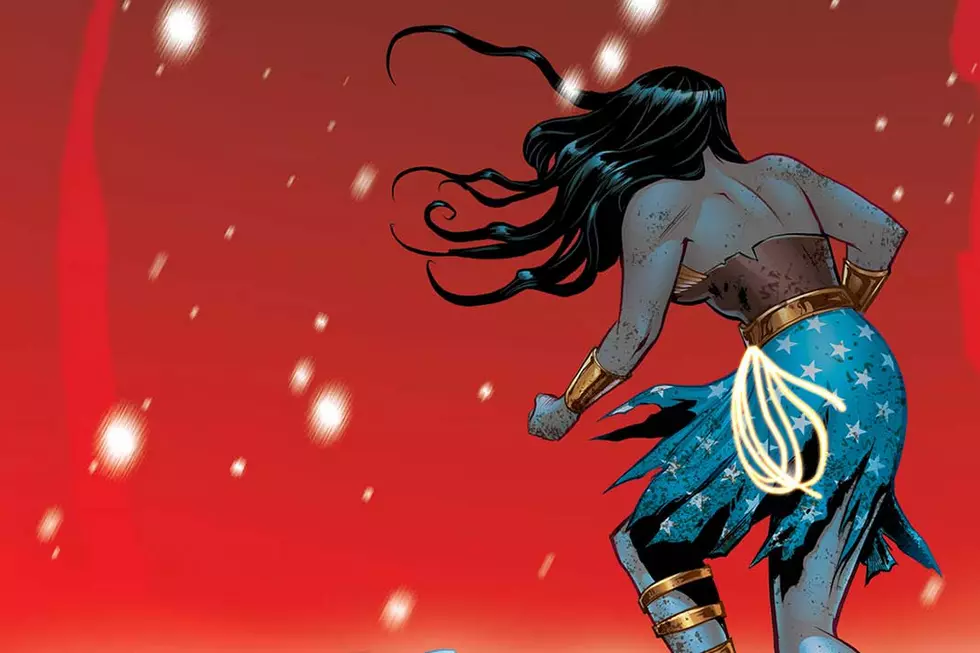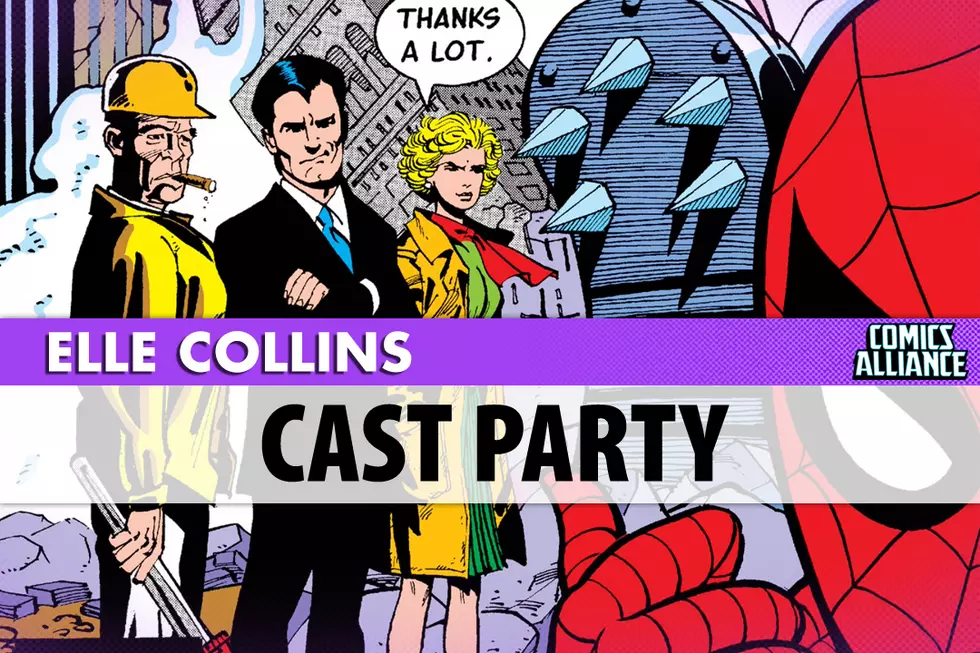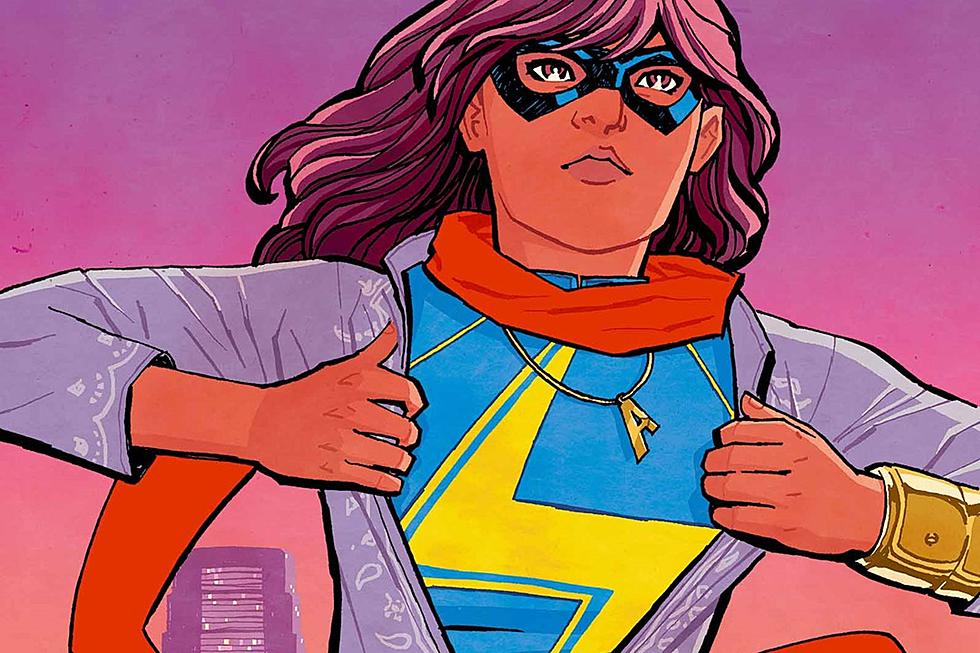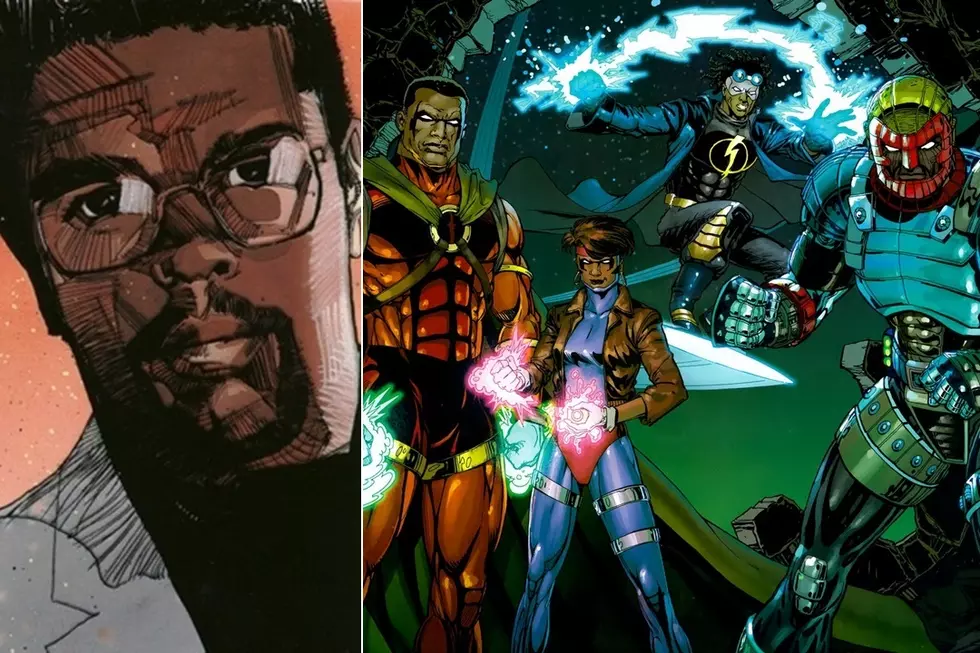
Dwayne McDuffie’s Sad Meta-Commentary on Corporate Comics
 The comics page isn't just there for telling stories. Sometimes it gets used for commentary on the book, society, or even the comic industry itself. Peter David has used it to take shots at other creators, John Byrne has used it to "fix" other stories, and Grant Morrison has used it to deconstruct comic universes. With the release of this week's "Milestone Forever" #2, Dwayne McDuffie may be using it to... say goodbye? Follow along:
The comics page isn't just there for telling stories. Sometimes it gets used for commentary on the book, society, or even the comic industry itself. Peter David has used it to take shots at other creators, John Byrne has used it to "fix" other stories, and Grant Morrison has used it to deconstruct comic universes. With the release of this week's "Milestone Forever" #2, Dwayne McDuffie may be using it to... say goodbye? Follow along:
When I was a kid, I used to have this parakeet. And sometimes, when I'd open up his cage to clean it... he'd escape. The little bird would see the backyard and make his move. Invariably, he'd head straight for the window, as fast as he could. And inevitably, crack his head on the windowpane... a barrier of glass, unseen and incomprehensible to him. So he'd try again, over and over... until spent and defeated, he couldn't try any longer.
My bird made a common error. He mistook being out of his cage... for being free.
The parakeet died a long time ago, without ever enjoying the freedom of the yard. The boy grew into a man, who spent many years bumping his head against a similar barrier: a ceiling of glass, unseen and incomprehensible to him.
The lesson is clear: escape is impossible until one perceives all of the barriers.
Those are the opening captions from 1993's "Hardware" #1, written by Dwayne McDuffie, drawn by Denys Cowan, inked by Jimmy Palmiotti, and colored by Noelle Giddings. These words are presented as Hardware's own, and immediately set the tone for the book. Hardware, a.k.a. Curtis Metcalf, is a very smart man. He's slowly coming to understand all of the barriers, and until he does, he will never have true freedom.Hardware's entire reason for being a superhero comes from the first time he discovered a tremendous barrier. In his day job, Metcalf is a genius-level inventor and engineer. After years of dedicated service, he went to his mentor and boss, Edwin Alva, and requested to share in the massive profits his inventions brought into the company. Alva's response was curt and effective:
You are not "family." You are an employee. Neither are you "heir apparent." You are a cog in the machine. My machine. You are not respected, Curtis. You are merely useful.
When you consider that Dwayne McDuffie has said that the first issue of "Hardware" is about his and Denys Cowan's departure from Marvel, things begin to click into place. Creator's rights remain a big deal in corporate comics, and it's easy to see the metaphor between Hardware's inventions and comic creators inventing new stories and characters.
Let's push forward about seventeen years and look at the recent "Milestone Forever" #2. Metcalf tells the story about the parakeet again (this time beginning with a cheeky "Stop me if you've heard this one before"), but this time, he changes the ending. Instead, he says,
"Unlike the bird, the man was capable of self-delusion. He believed, once aware of the glass, he could break through it. Many years later, he's learned the truth: this glass is still too thick."
Seventeen years later and the story is different. Gone is the optimistic "Anything is possible if you have enough knowledge." It's been replaced by a more cynical train of thought, one that suggests that progress in corporate comics is still nigh-on impossible. When placed in the context of McDuffie's career, progress could mean racial progress, in terms of comic books becoming less monochromatic and having a diverse crop of stars, or career progress, particularly in light of his fairly tempestuous recent run at DC Comics. Either way, the prognosis is not good.
This latest bit of meta-commentary in comics is pretty sad, isn't it? It's an easily abused tool, but when used properly, can make for stories that work on a number of levels, dramatically increasing their quality and entertainment value. In this case, I'd say that McDuffie used it well in both instances, despite its depressing subtext.
More From ComicsAlliance









